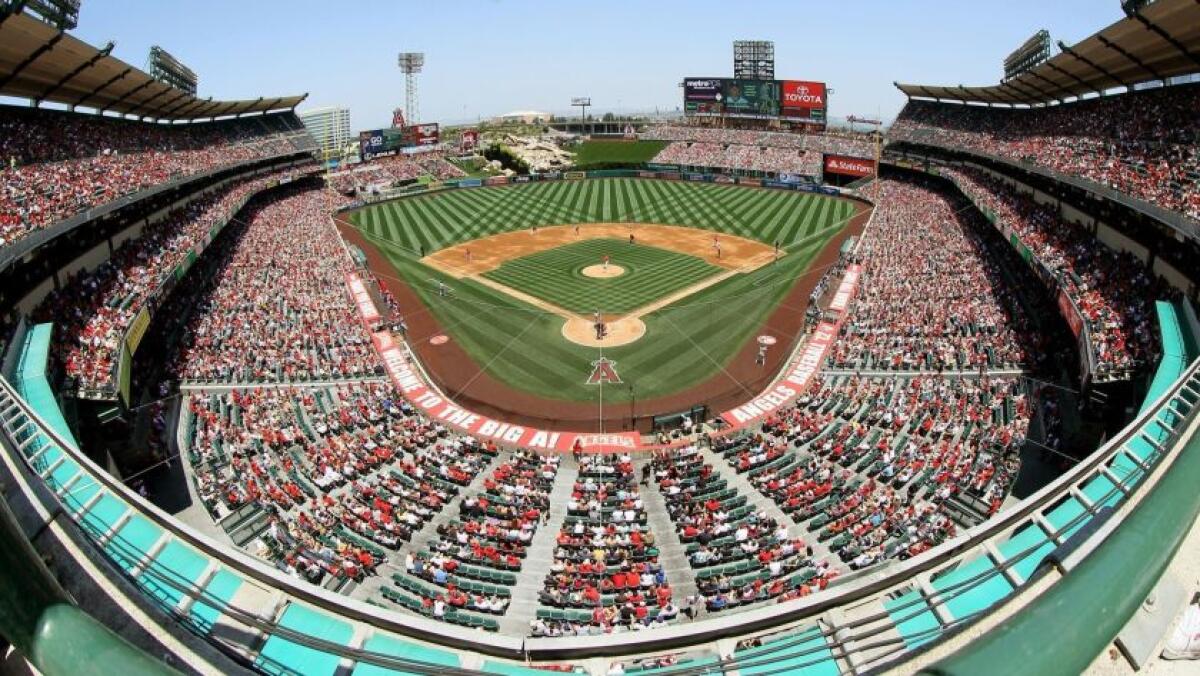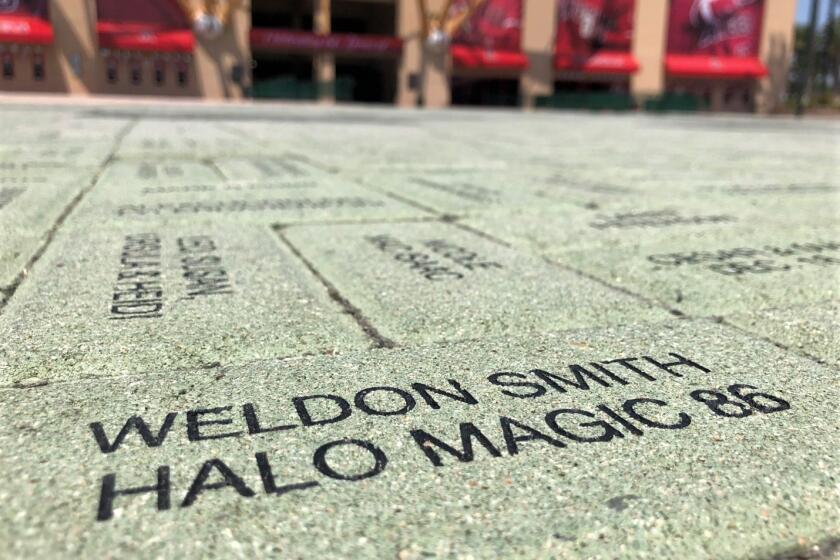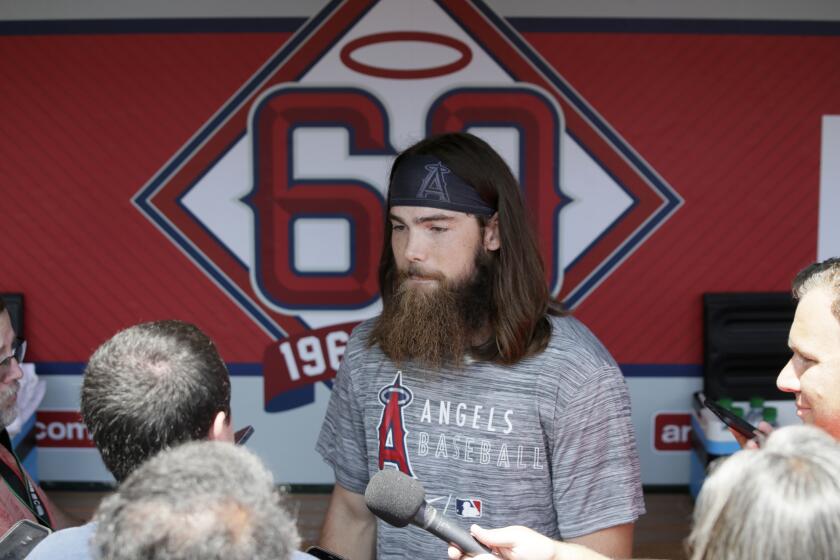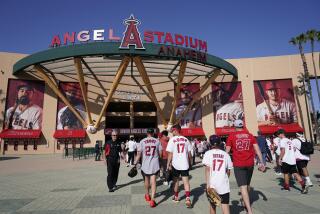Anaheim could ask housing developers to bid on Angel Stadium site

Two years after the city of Anaheim agreed to sell the property surrounding Angel Stadium to a company led by Angels owner Arte Moreno, the city could be forced to put that deal on hold and put the land on the market.
The state Department of Housing and Community Development has warned the city that its property sale could violate a California law intended to maximize the use of public land for affordable housing. If the housing agency and the city cannot resolve the issue, the city could end up making the stadium site available to affordable housing developers, City Atty. Rob Fabela told the Anaheim City Council early Wednesday morning.
If the deal with Moreno’s company were to collapse, the Angels still would play at Angel Stadium, with a reinstated lease that would expire in 2029, with the team holding options to extend the lease through 2038.
The city, however, could face this unenviable choice: ditch a deal designed to get the city out of the stadium business and secure the Angels in Anaheim through 2050, or proceed with the deal and incur a state fine of as much as $96 million.
“Obviously,” Fabela said, “that would be a lot of money.”
In 2019, the city agreed to sell the stadium and surrounding parking lots to Moreno’s fledgling development company for a price later set at $320 million, with $150 million to be paid in cash and $170 million credited toward the inclusion of parkland and affordable housing within the neighborhood Moreno plans to build around the ballpark.
A look at people who sponsored bricks outside Angel Stadium, reminders of cherished relationships with loved ones. Will the bricks survive a remodel?
The state housing agency said the city might have violated state law by not making the land available first to affordable housing developers and not securing the exclusive negotiating agreement with the Angels that might have exempted the city from the current version of the law. The city argues it was in fact negotiating exclusively with the Angels, even in the absence of a signed agreement, and that the project meets the state requirement of 15% affordable housing on development of public land.
However, if the agency and city cannot resolve the issue, Fabela said the council could consider putting the land up for bid among affordable housing developers, a process that he said “certainly could” undo or delay the Angels deal. That would not necessarily mean that affordable housing developers would be interested, or that the city could reach a deal with any of them.
The city believes it got fair value in the land sale agreement because the Angels’ lease — the one that would be reinstated if the sale collapsed — allows the team to control development on the property. That would prevent Anaheim from getting top dollar on a sale, since a developer might not be able to control the site until 2039.
Without a stadium on the site, and without those development restrictions, the property would have been worth up to $500 million, according to a city-commissioned appraisal. In the event the deal with Moreno’s company proceeds and Anaheim incurs a fine, the city could be left with $54 million from the sale.
Angels outfielder Brandon Marsh made his major league debut Sunday, going hitless in four at-bats in a 7-4 loss to the Seattle Mariners.
Fabela said the state housing agency first requested information about the Angel Stadium deal last November. The letter informing the city of the potential violation of state law was dated April 28; the city’s reply letter was dated June 14. The city since has provided additional information to the agency and is awaiting a response, Fabela said.
At a meeting that extended past 1 a.m., several council members expressed frustration that the council had not been informed about the developments until after The Times published a story about them June 24. City staffers said they believed they were working to resolve an administrative matter about a deal the council already had approved, but City Councilman Jose Moreno said that put him in the awkward position of responding to residents asking about the matter without knowing what to say about it.
“It doesn’t make the city look good,” he said. “That doesn’t make us look like a team.”
More to Read
Go beyond the scoreboard
Get the latest on L.A.'s teams in the daily Sports Report newsletter.
You may occasionally receive promotional content from the Los Angeles Times.









